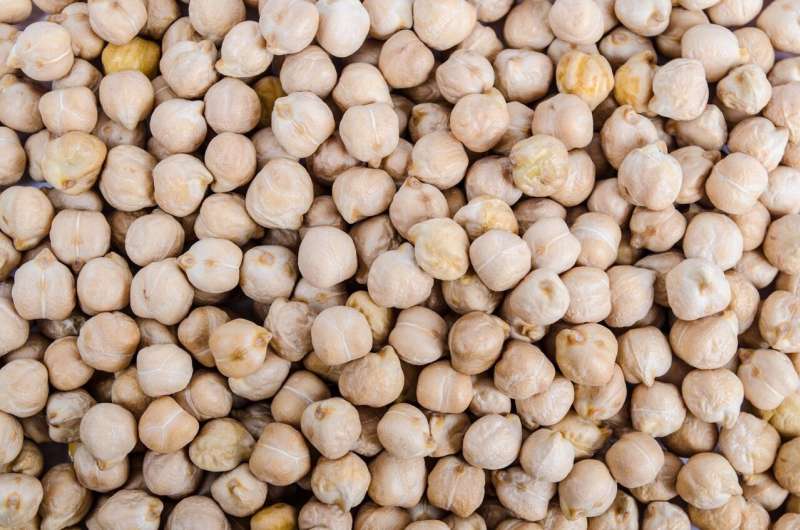Breakthrough in high-yield drought-resilient chickpeas

A global study led by the International Crops Research Institute for the Semi-Arid Tropics (ICRISAT) and involving scientists from The University of Western Australia has identified genes that can be used to develop drought and heat tolerant chickpeas.
The discovery has important implications for global malnutrition with chickpeas seen as a major solution.
Chickpeas are the third most commonly produced grain legume, however drought and increasing temperatures (heat stress) are estimated to cause the loss of more than 70 per cent of global chickpea yields. It is hoped the research findings will result in the ability to breed more resilient chickpeas.
Lead researcher Professor Rajeev Varshney, Research Program Director—Genetic Gains from ICRISAT and Adjunct Professor with UWA's Institute of Agriculture, said the research team identified genes such as REN1, β-1, 3-glucanase and REF6 which can help crops tolerate temperatures up to 38 degrees Celsius and provide higher yields.
The study also mapped the origins of chickpeas, confirming they came to India via Afghanistan and may have been introduced back to the primary source of origin 200 years later.
"Our study indicates Ethiopia as secondary centre of diversity and maps a migration route from Mediterranean/Fertile Crescent to Central Asia, and in parallel from Central Asia to East Africa (Ethiopia) and South Asia (India)," Professor Varshney said. The findings offer insights into the crop's genetic diversity, domestication and agronomic traits.
Professor Kadambot Siddique from UWA's Institute of Agriculture said UWA was delighted to be part of a global research effort with important applications for agriculture and the future of the planet.
"This is a significant breakthrough," he said. "Achieving food security and sustainability for the future is highly important and the results of this study will help Australian and global chickpea breeders develop climate-ready chickpea varieties with improved yield, drought and heat stress tolerance."
"The study has been made possible by an outstanding partnership between UWA and ICRISAT over the past decade and the international input of 19 other institutions across the globe."
The study "Resequencing of 429 chickpea accessions from 45 countries provides insights into genome diversity, domestication and agronomic traits" has been published in Nature Genetics online.
More information: Rajeev K. Varshney et al. Resequencing of 429 chickpea accessions from 45 countries provides insights into genome diversity, domestication and agronomic traits, Nature Genetics (2019). DOI: 10.1038/s41588-019-0401-3
Journal information: Nature Genetics
Provided by University of Western Australia




















